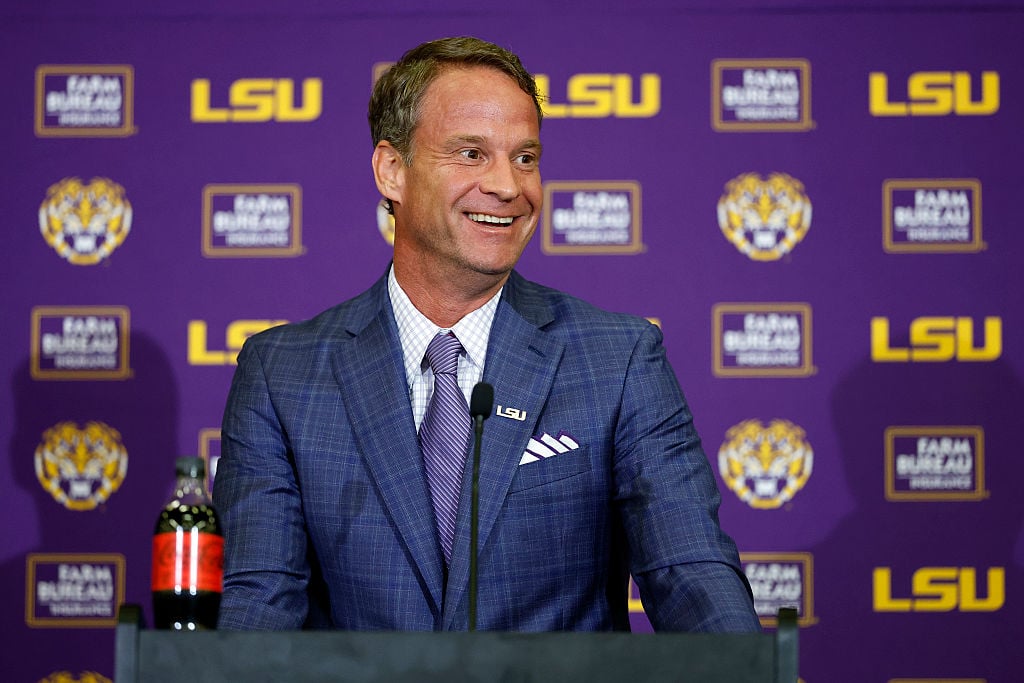James Franklin’s Double Paycheck: Penn State and Virginia Tech’s Unlikely Alliance
Introduction: A Coach, Two Schools, and a Whole Lot of Money
The college football world was stunned when Penn State, seemingly on the cusp of a national championship appearance, parted ways with head coach James Franklin. The move, amplified by whispers of a colossal buyout agreement, sent shockwaves through the sport. The Nittany Lions, fresh off a near-title game appearance, were willing to pay a hefty price to go in a different direction. This situation became even more intriguing when Virginia Tech subsequently hired Franklin. Now, Franklin is, in a way, on the payroll of both institutions, leading to a unique and financially fascinating scenario. What began as a shocking firing and a staggering buyout has transformed into a complex financial entanglement involving two prominent universities. The Nittany Lions initially owed Franklin about $50 million as part of his buyout. However, the story doesn’t end there.
The Mammoth Buyout: How Did We Get Here?
College football coaching contracts have become increasingly lucrative, often including massive buyout clauses designed to protect coaches from premature firings and schools from poaching. These clauses can be complex, involving offset language (more on that later) and payment schedules. The sheer size of Franklin’s initial buyout at Penn State immediately raised eyebrows. It highlighted the escalating financial stakes in the sport and the willingness of universities to invest heavily (and potentially lose heavily) in their football programs. The specific reasons behind Penn State’s decision to terminate Franklin’s contract, despite the recent success, remain a topic of speculation, but clearly, the administration felt a change was necessary, regardless of the financial implications.
Virginia Tech Steps In: A New Chapter for Franklin
Just weeks after his departure from Penn State, James Franklin found a new home at Virginia Tech. This move added another layer of complexity to the buyout situation. While a new coaching job often mitigates a buyout clause, the specifics of Franklin’s contract with Virginia Tech will determine the extent to which Penn State’s financial obligation is reduced. The Hokies, looking to revitalize their program, saw Franklin as the right man for the job, seemingly undeterred by the potential impact on Penn State’s coffers. This move underscored Franklin’s value within the coaching ranks, even after a somewhat surprising exit from a program on the rise.
Offset Language: The Key to Understanding the Financials
The term “offset language” is crucial in understanding how this situation plays out. Offset language in a coaching contract dictates that any money earned by the coach in a new job will be deducted from the amount owed by the previous school. In essence, Virginia Tech’s payments to Franklin directly reduce Penn State’s financial responsibility. The devil, however, is in the details. The specifics of the offset language in Franklin’s Penn State contract, including the types of compensation that are considered offsets, will determine the precise amount each university ends up paying.
Decoding the Contract: What Pays, What Doesn’t?
Navigating the intricacies of coaching contracts and buyout clauses requires a keen understanding of legal jargon and financial terminology. Not all compensation is created equal. For example, base salary, performance bonuses, and certain benefits might be subject to offset, while other perks, such as life insurance policies or deferred compensation, might not be. The fine print of Franklin’s contracts with both Penn State and Virginia Tech will determine which elements of his new compensation package reduce Penn State’s buyout obligation. This legal maneuvering can be quite complex.
The Impact on Penn State: Financial Implications and Fan Reactions
Penn State’s decision to pay a significant portion of Franklin’s salary while he coaches for a rival program has sparked debate among fans and analysts alike. Some question the financial prudence of the move, especially considering the resources potentially diverted from other areas of the university. Others argue that it was a necessary cost to move forward and find a coach better aligned with the program’s long-term vision. Regardless of opinion, the financial impact on Penn State is undeniable, potentially affecting budget allocations for football operations, facilities, or even other sports programs.
Virginia Tech’s Perspective: An Opportunity for Growth
From Virginia Tech’s perspective, hiring James Franklin represented a significant opportunity to elevate their football program. While the circumstances surrounding his departure from Penn State might have raised eyebrows, the Hokies clearly believed in Franklin’s coaching abilities and his potential to bring success to Blacksburg. The financial implications for Virginia Tech are straightforward: they are investing in a coach they believe can turn the program around. The added benefit, of course, is that their payments to Franklin reduce the financial burden on Penn State.
The Future of Coaching Contracts: Lessons Learned?
The James Franklin situation serves as a cautionary tale and a potential catalyst for change in how coaching contracts are structured. Universities may become more cautious about offering massive buyouts and may seek to include more stringent offset language to protect themselves financially. Coaches, on the other hand, may demand even larger buyouts to compensate for the increasing risk of being fired in a highly competitive environment. This cycle of escalation and negotiation is likely to continue, with universities and coaches constantly seeking to gain an advantage in the contract process.
Ethical Considerations: Is It Fair?
The ethical implications of this situation are also worth considering. Is it fair for a coach to be paid by two universities simultaneously, especially when one of those universities is essentially subsidizing his salary at the other? Some argue that it’s simply a matter of contract law and that both Penn State and Virginia Tech willingly entered into these agreements. Others contend that it creates a moral hazard, potentially incentivizing coaches to negotiate exorbitant buyouts with little regard for the financial consequences. The debate surrounding the ethics of coaching contracts is likely to continue as long as these massive financial arrangements persist.
Conclusion: An Unprecedented Situation with Lingering Questions
The situation of James Franklin being paid by both Penn State and Virginia Tech is unprecedented in many ways. It highlights the immense financial pressures in college football, the complexities of coaching contracts, and the potential ethical dilemmas that arise from these arrangements. As Franklin embarks on his new journey at Virginia Tech, the financial implications of his departure from Penn State will continue to reverberate, serving as a reminder of the high stakes and the often-unpredictable nature of college football.
Frequently Asked Questions (FAQs)
1. How much is Penn State actually paying James Franklin now?
The exact amount Penn State is paying depends on the specifics of Franklin’s contract with Virginia Tech and the offset language in his Penn State buyout. The Hokies’ payments directly reduce Penn State’s obligation.
2. What happens if James Franklin gets fired from Virginia Tech?
If Franklin is fired from Virginia Tech, the offset stops. Penn State would then be obligated to pay the remaining balance of his original buyout.
3. Could this situation have been avoided?
Potentially, by structuring the original Penn State contract with different buyout terms or by including more favorable offset language. However, in the competitive coaching market, schools often feel pressured to offer generous contracts to attract top talent.






